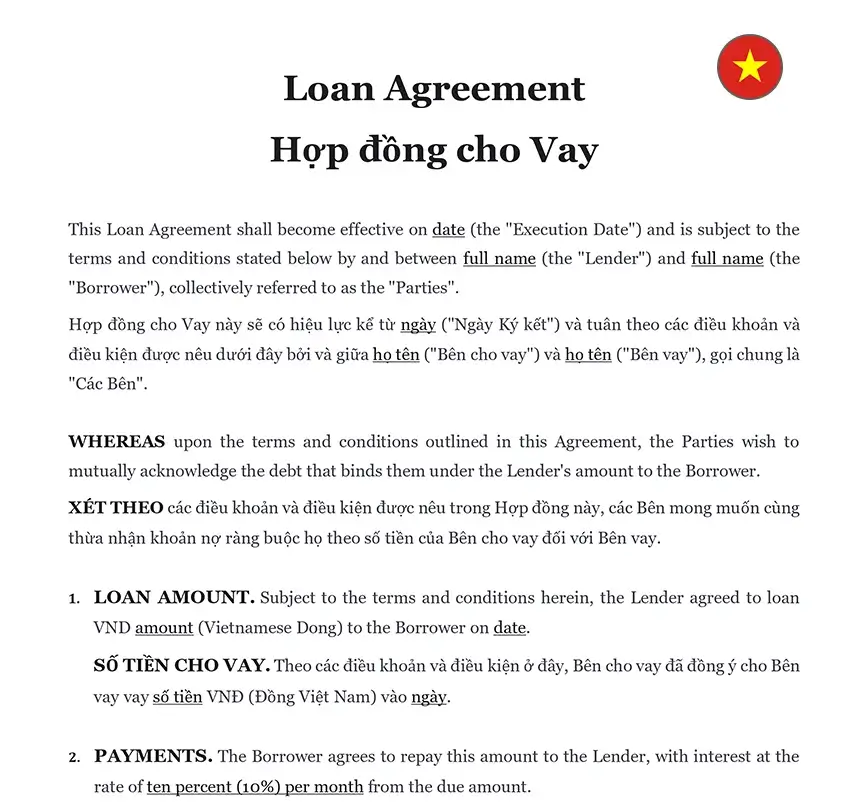Understanding Personal Loan Agreements
Personal Loan Agreements are legally binding contracts between a lender and a borrower that outline the terms and conditions of a loan. These agreements are essential for formalizing the loan process and protecting the interests of both parties. A well-drafted loan agreement specifies the loan amount, interest rate, repayment schedule, and other critical details. By establishing clear terms, both parties have a mutual understanding of their rights and obligations, reducing the likelihood of disputes and misunderstandings. A comprehensive agreement also provides legal recourse in case of default, ensuring that both parties are protected under Vietnamese law. Draft secure loan agreements with our Loan Agreement template to cover all terms and conditions.
Key Elements of a Loan Agreement
When drafting Personal Loan Agreements, it’s important to include the following key elements:
1. Loan Amount: Clearly state the amount of money being borrowed to avoid any future discrepancies. This should include the principal amount as well as any additional amounts that may be added to the loan over time.
2. Interest Rate: Specify the interest rate, whether it is fixed or variable. It’s crucial to detail how the interest will be calculated and applied over the loan period, providing transparency to the borrower.
3. Repayment Schedule: Outline the repayment terms, including frequency and amount of payments. A clear schedule helps the borrower manage their finances and ensures the lender receives timely payments.
4. Collateral: Describe any assets pledged as security for the loan. Collateral provides the lender with a form of protection in case the borrower defaults on the loan.
5. Default Terms: Define the conditions under which the borrower is considered in default. This section should also outline the consequences of default, including any penalties or legal actions that may be taken.
6. Governing Law: State the jurisdiction that governs the agreement, in this case, Vietnamese law. This ensures that both parties are aware of the legal framework within which the agreement operates
Legal Requirements for Personal Loan Agreements in Vietnam
To ensure your Personal Loan Agreements are enforceable, they must comply with Vietnamese law. According to the Vietnamese Civil Code, personal loans should include detailed terms and conditions agreed upon by both parties. Compliance with local regulations ensures that the agreement is legally binding and can be enforced in court if necessary. For more information on the legal requirements, you can visit the Vietnam Ministry of Justice, which provides comprehensive guidelines and resources for legal compliance. Key elements to include:
| ➤ Loan amount. |
| ➤ Interest rate. |
| ➤ Repayment terms. |
| ➤ Default conditions. |











